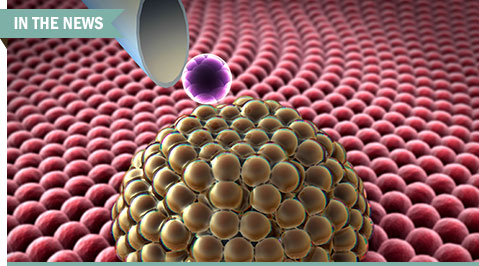 Image credit: Ugreen/Thinkstockphotos.com
Image credit: Ugreen/Thinkstockphotos.com
A large phase II clinical trial gets underway this summer that seeks to target therapies for cancer patients based on the gene mutations of their tumors instead of focusing on the origin of the cancer.
Funded by President Obama’s precision medicine initiative, the NCI-MATCH: Molecular Analysis for Therapy Choice trial will draw from a pool of about 3,000 to enroll about 1,000 cancer patients—some of whom have rare forms of cancer—to various substudies or “treatment arms.” Eligible individuals include cancer patients aged 18 and older with solid tumors or lymphomas that did not respond to at least one course of standard therapy. Patients are also eligible if no standard treatment is available for the types of tumors they have.
The National Institute of Health’s National Cancer Institute (NCI) co-developed the study with the ECOG-ACRIN Cancer Research Group, which is part of the NCI-sponsored National Clinical Trials Network. ECOG-ACRIN will be taking the lead in developing this study.
NCI’s acting director Doug Lowy, MD, expects this to be a groundbreaking trial. “It is the first study in oncology that incorporates all of the tenets of precision medicine. There are no other cancer clinical trials of this size and scope that truly bring the promise of targeted treatment to patients whose cancers have specific genetic abnormalities. It holds the potential to transform cancer care,” Lowy said in a statement from NCI.
Gene mutations in tumors are uncommon, occurring in less than 10% of cancer patients. For this reason, the trial will be relying on advanced gene sequencing measures to cast a wide net in detecting such abnormalities. NCI indicates that the trial will have to screen a significant number of patient tumors.
Though infrequent, these driver mutations can be especially responsive to targeted treatment, Barbara Conley, MD, associate director of the Cancer Diagnosis Program with NCI’s Division of Cancer Treatment and Diagnosis, told CLN Stat.
As an example, anaplastic lymphoma kinase (ALK) rearrangements exist in just 3% to 5% of adenocarcinomas of the lung. “However, if a patient with lung cancer is treated with a drug that inhibits ALK, the response rate is 55% to 60%, with a duration of 9-12 months median,” she said. Most of the treatments in the study involve targeted agents; traditional chemotherapy isn’t currently included.
Patient enrollment in the trial begins in July.
As NCI explains in its statement, the trial “will incorporate more than 20 different study drugs or drug combinations, each targeting a specific gene mutation, in order to match each patient in the trial with a therapy that targets a molecular abnormality in their tumor.” To identify these gene mutations in tumors, the trial will employ a single DNA sequencing test developed by the NCI Molecular Characterization Laboratory at the NCI Frederick National Laboratory for Cancer Research (NCTN) in Frederick, Maryland. The test looks for more than 140 cancer-associated genes that drugs in the trial will be able to target.
DNA sequencing will be conducted on tumor biopsy samples collected from patients during the initial screening process. “If a molecular abnormality is detected for which there is a specific substudy available, to be accepted in NCI-MATCH patients will be further evaluated to determine if they meet the specific eligibility requirements within that arm. Once enrolled, patients will be treated with the targeted drug regimen for as long as their tumor shrinks or remains stable,” according to NCI’s statement.
According to NCI, there are two clinical “endpoints” to this trial: the overall response rate, or proportion of patients whose tumors decrease in size by a certain amount over a certain period of time, and those patients whose cancer stabilizes over a 6-month period, otherwise known as “6-month progression-free survival.”
“For our purposes, a response rate of 5 percent or less in a molecularly-defined population will not be considered promising, whereas a response rate of 16 percent to 25 percent will be encouraging,” Conley said in the NCI statement.